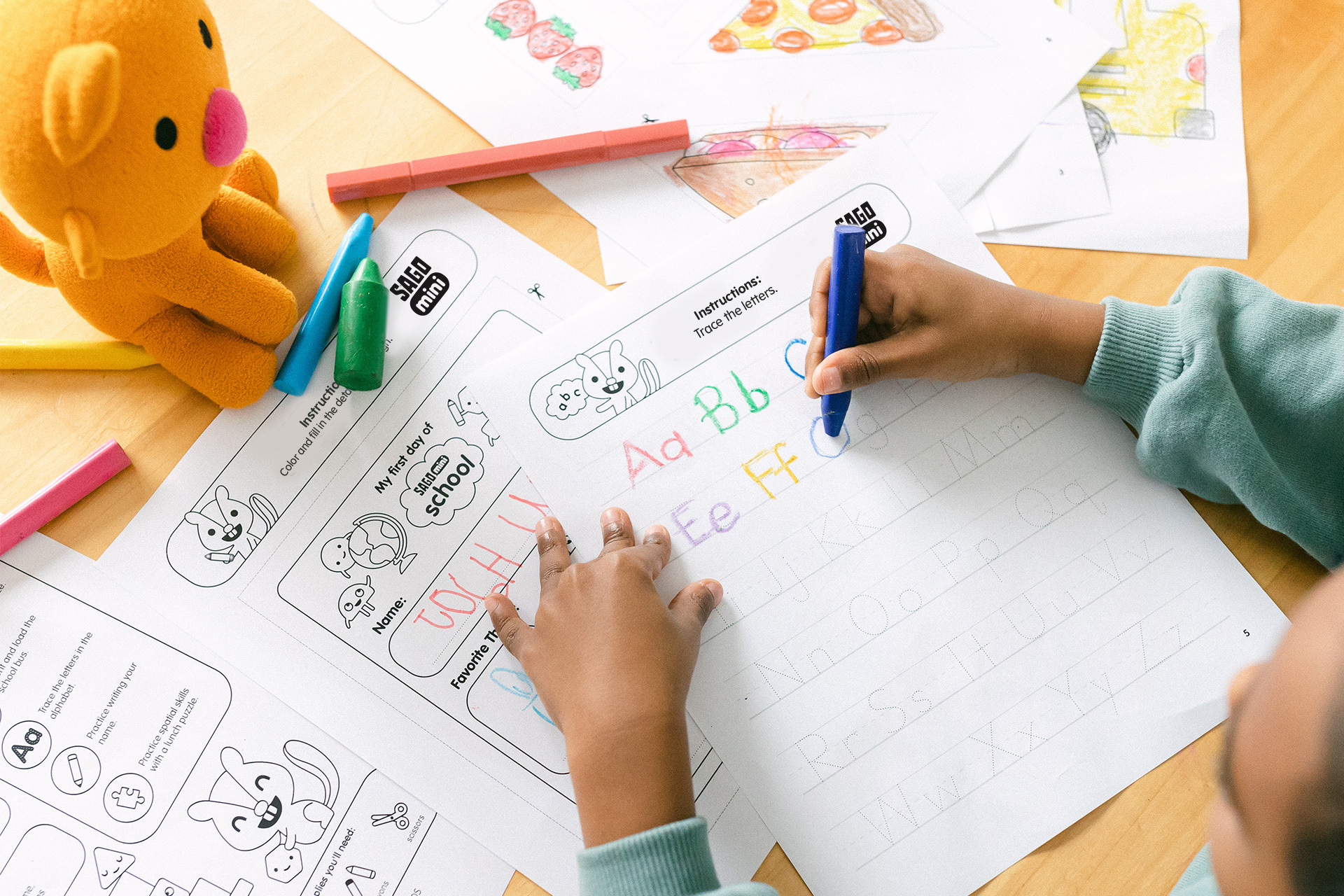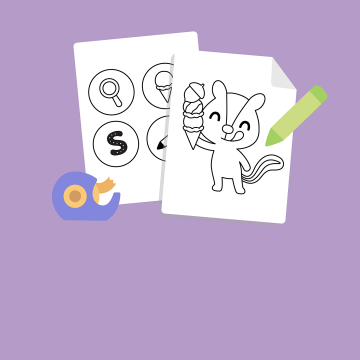- “Let’s pretend!” An Educator’s Top Tips for Pretend Play

Pretend is a powerful and necessary activity for a child. When children say those two magical words, anything becomes possible. And that freedom provides a space where children are able to explore different scenarios, take on new perspectives, learn to regulate their emotions, practice negotiating and develop counterfactual reasoning (the ability to see possible different outcomes to events which already occurred.)
But as we grow older we no longer rely on pretend play to make sense of the world. We’ve developed the ability for higher-order thinking and complex logic and returning to the world of child-like play can be difficult.
As our children spend more time at home, chances are that you’ve become your child’s primary playmate. Every day I step outside to hear my five-year-old neighbor yelling my name asking me to take part in whatever play he invented that day. As a long-time preschool teacher, I’m comfortable with suspending reality. And as an educator, I have a few tips on straddling the fine line between engaging and altering the child’s motivation.
Here are my top tips for pretend play!
It’s Not About You
Whether you are building with blocks or playing restaurant, you are a supporting character. While it can be hard, especially when you know that one more block will topple the structure … you have to let the blocks fall. When we intervene, we deny our children the opportunity of a teachable moment. In fact, children learn more from mistakes than they do when they get it right on the first try.
Know Your Role
Play is a time for children to experiment, test, and learn. When a child invites you into their world of pretend it is important for you to know your character. For example, if you’re playing train, ask your child where you’re going. Ask how long the trip will take? Ask if there will be food service? Ask if the train is a fast or slow train. There are a few reasons for all these questions. To start, when we ask our children open-ended questions it helps engage in higher-order thinking. At the same time, it allows you to know your child’s agenda so you can assume the role you were born to play!
Wait for Cues
Have you ever played restaurant and your child got angry because you didn’t eat your invisible food when it arrived? When children engage in pretend play it is often far more detailed than you can ever imagine. They have a script they are following … and it’s one you’ve never seen. This can be, well, maddening! However, wait for your child’s cues. Much like any director, they will often naturally cue you into a scene change.
You Can and Should Push Back
One reason that pretend play is so important is the fact that it is a negotiation. Children argue over who gets to be the “mommy” or the “baby.” Have you been playing the game a while? Does something seem unfair? Is your child just bossing you around? If this were a classroom a child would get up and leave. While I’m not suggesting you get into a struggle over pretend play, I am suggesting that you vocalize your concerns. “How come you get to drive the train? Why can’t I?” This act of pushing back encourages the child to reflect on the play you are having and together you can come up with a solution.
So next time your child says those two magical words, don’t shutter in fear. Take a deep breath, follow their lead, and remember that the ten minutes you spend suspending reality has lasting benefits for your child.


